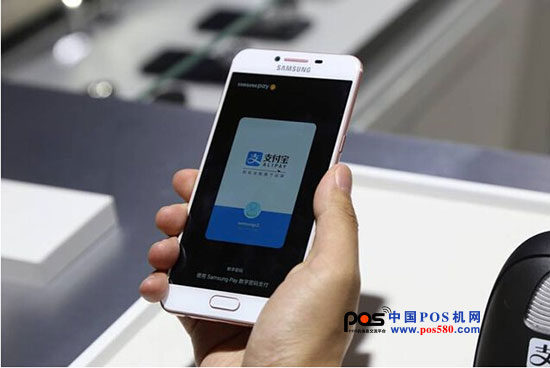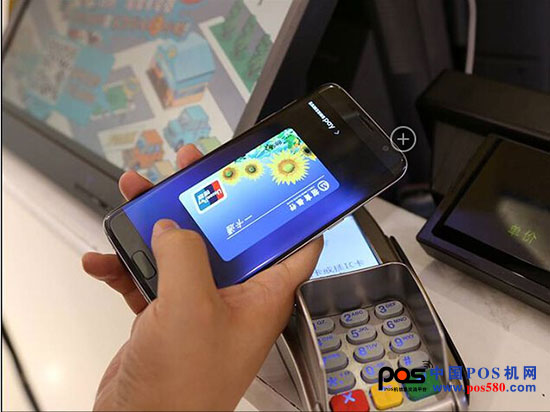China will be the world's largest and fastest-growing mobile payment market, and the number of Chinese smartphone users using mobile phones to pay at POS has doubled compared to last year.
According to media reports, Samsung Electronics has officially launched Samsung Pay Pay, a mobile payment service in Brazil. As one of the sponsors of the International Olympic Committee, Samsung hopes to take the Summer Olympics to be held in Rio de Janeiro as an opportunity to enter the Latin American market and even expand global mobile payment services.
Mobile payment global layout, Olympic Games into Samsung development opportunities
With the popularity of mobile electronic devices around the world, the mobile payment market began to enter the outbreak period in 2015, including Apple, Samsung, Google and Alipay are all intensifying their layout to compete for market share. Market research firm Forrester Research estimates that by 2019 the global mobile payment market will reach $142 billion. For smartphone manufacturers with the largest market share in the world, Samsung has a strong market base.
At present, Apple Pay has been launched in 8 countries and regions such as the United States, China, and France. Samsung Pay has also been listed in South Korea, the United States, China, Singapore, Spain, Australia, Brazil and other countries and regions, and has formed a global layout.

Samsung Pay Brazil official website, the service has been officially launched
According to reports, since the release of Samsung Pay service last year, the service has 5 million registered users in the United States and South Korea, and the total transaction amount in South Korea has exceeded 1 billion US dollars. Samsung Electronics currently has a 42% share of the mobile phone market in Brazil. Brazil's local banks, such as Banco do Brasil (Brazil Bank), are not only expected to successfully expand the Brazilian market, but also through the Olympic Games and athletes. A major breakthrough in the market.
The good experience of Samsung Pay is the key to its rapid layout
The prospect of the mobile payment market is undoubted, and the development of globalization is also an inevitable trend. With the promotion of more styles of wearable smart terminals, mobile payment will become a more conventional and popular payment means. Users around the world will gradually shift from using cash and credit card payments to paying directly through mobile phones. New payment habits are taking shape. The key to determining the success or failure of mobile payment companies will be technology and speed.

Samsung Pay supports Alipay QR code, deep cooperation and more extended use scenarios
Since 2015, Samsung has made mobile payment its key global development strategy. Its technological leadership has further established its leading position in global mobile payment applications. The rapid market layout also reflects mobile smart terminals and the Internet. The forward-looking and financial cooperation of the financial business has enabled it to have a broader development space and greatly enhance the customer experience.
Unlike Apple Pay's demanding upgrades for POS machines, Samsung Pay's exclusive MST (Magnetic Signal Security Transmission Technology) supports most new and old pos machines, which is why it is quickly deployed.
In addition, from an experience level, according to the latest reports from the US media, a survey of 2,000 users in the United States shows that 92% of Samsung Samsung Pay users are satisfied with Samsung's mobile payment service, while Apple Pay's satisfaction is 84%. .
The Chinese market becomes the stage for mobile payment, Samsung's rapid layout
Research firm eMarketer believes that China will be the world's largest and fastest-growing mobile payment market, and the number of Chinese smartphone users using mobile phones to pay at POS has doubled compared to last year. According to a survey conducted by market research firm Nielsen, 86% of Chinese respondents have purchased products and payments over the Internet in the past six months, which is significantly higher than anywhere else in the world, global online shopping and payment. The ratio is only 43%. Therefore, in order to take advantage of the competition in the mobile payment market, it must also make a difference in the Chinese market.
Technically speaking, Apple Pay currently only supports NFC-enabled POS machines with poor compatibility, while Samsung Pay can be used for NFC terminal POS machines as well as old-fashioned magnetic card POS machines without NFC function. It is very suitable for the current situation of the Chinese commercial market, and is also conducive to promotion and application. As a result, Samsung's mobile payment market in China has grown faster than its competitors.

Samsung Pay currently supports card types of major domestic banks including China Merchants Bank Savings Card.
In addition, Samsung Pay's user compatibility is also very good. Samsung phones support Samsung Pay's models continue to increase, more popular than other smart phone manufacturers, users can choose the model that suits them. In China, Samsung Pay not only cooperates with UnionPay, but also cooperates with Alipay. In the future, it is very likely to cooperate with other QR code payment, and the payment options of users are more convenient.
At present, for the Chinese market, Samsung has shown a high degree of attention. It can meet the needs of Chinese consumers in various ways and expand more added value. It will become an important force in China's mobile payment market in the future.
Red Light Therapy has been widely used in traditional clinical medicine, and the effect is remarkable. Medical-grade red light accelerates wound healing, reduces pain and inflammation, and stimulates collagen production anti aging. With the development of medicine and in-depth research, it has been proved that red light therapy in a specific band can be used to improve vision, and the color vision of the subjects improved by 20%.
Led Light Therapy Medical Device,Red Light Therapy Panel,Medical device for incresing collagen
Shenzhen Bonliter Optoelectronic Co., Ltd. , https://www.bonliters.com